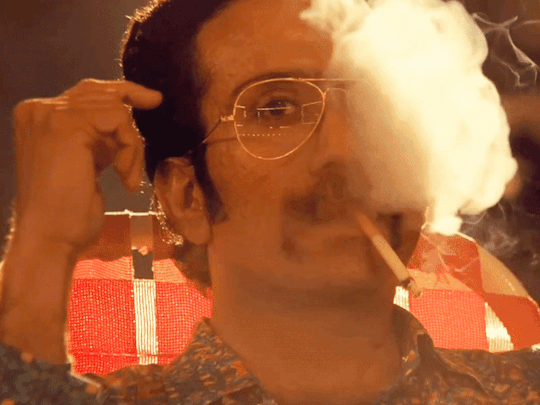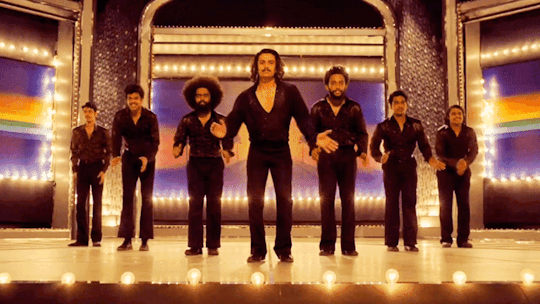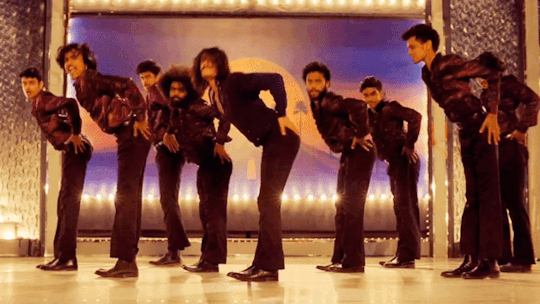#chacko
Explore tagged Tumblr posts
Text

Title
Transfer of Wisdom
This lovely morning in June, while we were photographing a herd at Amboseli National Park in Kenya, a young elephant walked up to an adult and they shared a long interaction where they just stood next to each other, trunks barely touching. The whole scene seemed almost mystical to us and we were convinced that there definitely was some transfer of elephant wisdom taking place!
Prashant Chacko Preeti John
United Arab Emirates
Neutral Density Photography Awards 2023
#prashant chacko preeti john#photographer#united arab emirates#elephants#amboseli national park#kenya#animal#mammal#wildlife#black & white photography#neutral density photography awards#nature
42 notes
·
View notes
Text
youtube
Lunch Hour (2023) [2 min] by Mina Chacko | USA
#2D#2D Animation#2023#2 min#Mina Chacko#USA#Animated Short#AnimatedShortOfTheDay#Animation#Lunch#School#Friendship#Friends#Food#CalArts#Youtube
2 notes
·
View notes
Text









Rathipushpam Video Song
#OK. I'm obssessed#EVERYTHING...EVERYTHING about this video song is waahhhh🤌#hella gay!!!!! and I LOVE IT#has this been done before????????#shine tom chacko#bheeshma parvam#mollywood#indian cinema#kimuona
3 notes
·
View notes
Text
Now Playing...
Artist: Amazon
Title: Fallen Angel
Album: Hypnotizing You Single

Played on: Thu Dec 12 2024 13:41:12 GMT-0600 (Central Standard Time)
#Amazon #Female Fronted #BEWARE THE SIREN
#Amazon#Amazon The Band#Lori Chacko#beware the siren#female fronted#rock#80s#80s music#80s rock#picture sleeve#1981
0 notes
Text
ഉപതിരഞ്ഞെടുപ്പ് ‘ഡെഡ്ലൈൻ’, ശശീന്ദ്രൻ മന്ത്രിസ്ഥാനം ഒഴിയണം; അന്ത്യശാസനവുമായി പി സി ചാക്കോ

#ncp#thomas k thomas#AK Saseendran#PC Chacko#latest news update#kerala times#latest news#keralatimes
0 notes
Text
जिन आंखों ने धैर्य के सिवा कुछ नहीं देखा था, आज पहली बार डर से भारी हुई थी! JrNTR और Saif Ali Khan की फिल्म Devara का ट्रेलर जारी
Jr NTR इन दिनों अपनी आगामी फिल्म Devara और वाॅर2 को लेकर काफी चर्चा में बने हुए हैं. इसी बीच Devara का ट्रेलर भी रिलीज कर दिया गया है. ट्रेलर 2.40 मिनट लंबा है. ट्रेलस के शुरू होने पर ही एक बेहरतीन डायलाॅग “न जात न धर्म डर जरा सी भी नही जिन आंखों ने धैर्य के सिवा कुछ नहीं देखा था, आज पहली बार डर से भारी हुई थी” से शुरु होता है. NTR JR – SAIF ALI KHAN – JANHVI KAPOOR: ‘DEVARA’ TRAILER IS HERE……
#Chaitra Roy#Devara#Janhvi Kapoor#Kalaiyarasan#Meka Srikanth#Murli Sharma#N.T. Rama Rao Jr#Narain#Prakash Raj#Saif Ali Khan#Shine Tom Chacko#Shruti Marathe
0 notes
Link
ഓർമയിലെ ഇന്ന് : :ഓഗസ്റ്റ് – 15 : ചെമ്മനം ചാക്കോ
0 notes
Text
You know, I was very careful to say "any prior version" when talking about Ann Rinaldi's creepy, over-sexed version of André because The Traitor's Wife by Alison Pataki is basically an R-rated, worse-written version of Finishing Becca where the heroine is named after a cow, but either one part of this interview is weirdly phrased or Donna Thorland went even harder in Turncoat with André the sexual predator and has him molesting John Cope, who she inexplicably keeps referring to as Caleb. (Caleb was the father. John was the kid. Also André was trying to get Caleb Cope to send John to him in Carlisle, not New York. As soon as André got exchanged, he seems to have completely lost interest in cultivating John Cope's artistic genius. There's no reason to think he ever asked them send him to New York. I think she's either using Thomas Cope's diary or someone who cites Thomas Cope's diary, because Thomas Cope makes it sound like André was in Lancaster until he was exchanged. Note that Thomas Cope was like seven or eight when this was going on and he was writing I think twenty-seven years later after John Cope had just died of something that was probably alcohol-related, so there's stuff he's clearly not remembering correctly.)
Under the cut, I hope, because some people think that humans are way more sex-obsessed than they actually are, and some of those people have somehow managed to get book deals.
I couldn't find "Caleb" or "Cope" (which I had to put in quotes because Google was showing me snippets with the word "deal" in them thanks Google) when I tried searching inside the book, but he has to be in there, otherwise why would she talk about it? I may have to see if the library has a copy because I'm not giving this woman money, but it might piss me off so much that it would be excessively cruel to my mother to read it because then she'll have to listen to me complain for days.
What's particularly unpleasant is that even if he isn't a child-molester, it looks like she went hard on the whole Evil Gay (Depraved Bisexual?) trope, and several reviewers are claiming this is a more realistic portrayal than the older romanticized versions/"how I think of him has completely changed". Um, based on excerpts and reviews, he's seems to be an over-the-top evil secretly gay spymaster in Philadelphia who tries to murder the heroine by drugging her and leaving her in an ice house. Honestly the gay bit is the least unrealistic part here because that's something normal humans do, and it's still wrong.
A lot of the negative reviews are complaining about how rapey this book is, and it's making me think of the terrible Israel Potter novel I did read, which was basically "if James Bond lived during the American Revolution and was written by misogynist porn-addicted incels". (Gone Over? Or maybe that was the first book? Unfortunately there were two of them.) And if you're going "isn't that just James Bond during the American Revolution?", I have read James Bond, and I can tell you, it's not. I actually kind of enjoyed James Bond. These books were awful. By the time André showed up, I was trying to guess whether he would be a depraved pervert like every other male in the book, or gay. I forgot "both" was an option. Fortunately the authors didn't spend unnecessary amounts of time following him to increasingly recherché brothels, like they did with another character who was actually only separated from his wife and kids for like three months before they followed him to Paris in real life, but in this stupid book he's away from them for years because he's too busy watching fake nuns having sex with donkeys.
I don't even remember most of the characters' names. There was Gary Stu; King George III; John André; Depraved Perverts 1-270; Gary Stu's Depraved Pervert Mentor Who Secretly Slept With Gary Stu's Future Faithful Wife; Gary Stu's Convenient Casual Sex Girlfriends Who Get Conveniently Married Off So They Stop Being His Problem; Gary Stu's Lobotomized Faithful Wife Who Forgives Him For Being A Massive Hypocrite About The Fact That She Wasn't A Virgin; Two Million Assorted Whores, Some In Nuns' Costumes; and Squirting Peggy Shippen.
We do get a moment where Gary Stu shows up at Joshua Hett Smith's house and, when André points out the window, there's a bit of narration about how Clinton loves that hand because that's the hand André gives him handjobs with, because this is a completely normal thing to think when you're trying to figure out how to get the plans Benedict Arnold gave André back to New York so the British can capture West Point and win the war. Also, when I say Gary Stu shows up at Joshua Hett Smith's house, I mean he shows up at his house with a boat that he then uses to row himself back to the Vulture, and for some inexplicable reason André still goes back by land with the incriminating papers and gets caught and hanged. I say "some inexplicable reason", but actually I assume it's because André was trying to get himself executed because it was the most effective way of escaping from that horrible book. Sometimes your characters get away from you like that.
Anyway I'm wondering if there's a correlation between authors who think historical realism means straight men were having not-that-consensual sex with women constantly and authors who look at André and think, "Manipulative Bisexual". (Or "Manipulative Homosexual"; six-of-one, half a dozen of the other.) This is partly because I know there was a thing in the mid-20th century about "haha dumb bitch, you think the reason that guy doesn't sexually harass you is because he's gentlemanly and chivalrous, but actually it's because he's gay" and we are really not as far from skeevy early-mid 20th century beliefs about human sexuality as we think we are, and I mean you too, intersectional queer representation tumblr people.
#John André#Caleb Cope#John Cope#David Chacko#Someone take David Chacko's computer away#Donna Thorland#complaining about books I haven't read#yet?#and also books I wish I hadn't read
1 note
·
View note
Text
Sangeeta Chacko, Head – Corporate Communications, Percept EMC featured in the PrimeView magazine ‘Elite League of Influential Leaders 2024’ special edition, as she shares her views on how Artificial Intelligence and the Human Race can join forces for a brighter future. Read more at: https://primeview.co/when-ai-and-the-human-race-join-forces-for-a-brigther-future/
0 notes
Link
Mammootty, Vinay Rai, Shine Tom Chacko, Jinu Joseph, Kalesh Kalakkodu, Aishwarya Lekshmi, Deepak Parambol, Amala Paul, Rajesh Sharma, Manohari Joy, Aditi Ravi, Amal Rajdev, Sneha, Vasanthi, Thanseel P.S., Shaheen Siddique,
#Mammootty#Vinay Rai#Shine Tom Chacko#Jinu Joseph#Kalesh Kalakkodu#Aishwarya Lekshmi#Deepak Parambol#Amala Paul#Rajesh Sharma#Manohari Joy#Aditi Ravi#Amal Rajdev#Sneha#Vasanthi#Thanseel P.S.#Shaheen Siddique#Keerthana Sreekumar#Manjulan#Remya Suresh#Dileesh Pothan#R. Sarathkumar#Siddique#Vinitha Koshy#Nitin Thomas#Hhary Jo#Vaisakh Shankar#Angel Shijoy#Jojo George
0 notes
Photo

“Hallelujah”
by Preeti and Prashant Chacko (Kenya).
The Greatest Maasai Mara Photographer of the Year.
#preeti and prashant chacko#photographer#kenya#giraffes#animal#mammal#wildlife#maasai mara#nature#greatest maasai mara photographer of the year#black & white photography
17 notes
·
View notes
Text
youtube
Eclipse (2024) [4 min] by Mina Chacko | USA
#2D#2D Animation#2024#4 min#Mina Chacko#USA#Animated Short#AnimatedShortOfTheDay#Animation#Eclipse#Sun#Moon#Space#CalArts#Family#Following Your Dream#Youtube
1 note
·
View note
Text
The God of Small Things
ARUNDHATI ROY
I finished this book just yesterday and this is the book that inspired me to create this blog. While reading, there are so many times, I had to just put the book down and think, and each time I thought this way, there was a tranquil silence in my mind(which is quite unusual for me). The story was a very layered and complex one, and in a few sentences, there were feelings and stories between the lines. The main setting of the book was in Ayemenem, Kerala, revolving around the Ipe family. Each member different, with their own shares of trauma, happiness and wishes. Each place described has it's own story to tell and however irrelevant to the main plot, it helps us understand a connection between everything- everything lost, everything seen, everything unseen. The characters that mainly affect the plot are- the twins (Esthappen and Rahel), Ammu (their mother), Chacko(maternal uncle), Sophie Mol(Chacko's daughter), Margaret Kochamma(Sophie's mother), Mammachi(Ammu and Chacko's mother), Pappachi (Ammu and Chacko's father) and Baby Kochamma (Pappachi's unmarried sister). It jumps in the timeline between two importan t times- one when the twins were still children and the other when they have grown up. Traumatic events is a heavy element throughout the story. It shows different faces of trauma and different outcomes of the same one. Trauma due to marriage issues, the one gifted by parents, sexual trauma, society's- not just the words spun by the evil's guard dogs but also of the expectations. Higher caste people are required to be polished idols(ofcourse it is created and perpetuated by them themselves, so no one else is to blame) and lower caste(in the story mainly untouchables) people expected to kneel for no other reason than the sin of their birth. I didn't quite understand the relationship between the twins. They were connected not just in views but by mind and soul; though suffering the same atrocities of life, their reply to life is totally different from each other, except the emptiness in them. Since I understood so little about it, I won't comment further on it and will try to reread someday again. Throughout the story, their is also an underlying loneliness. And what I understood in the end, in life the God of Small Things is nothing but "Love". For, love doesn't exist in grand gestures and in costly gifts. Love doesn't ask for beg or seek anything. It always lurks in the background. Love is found in small things, it is found in simple eye contacts and laughing together, it is found in looking at another person's mole and remembering the outline of the face. It is found in celebrating each others existence even on bad days. It also touches topics of sexual perversions that arises from sexual curiosities at a young age. And the taboo around the topic just makes the curiosity manifest in a complex way. However, not a single line in the story shames anything about it which I felt was a very sensitive line to tread. It also talks a little about the toxic relationship between a son-obsessed mother and her son, jealousy, neglecting children and the worship of colonialists. Overall, I enjoyed reading it.
#reviews#bookreview#books#the god of small things#arundhati roy#god of small things#academia#desi dark academia#chaotic academia#light academia
14 notes
·
View notes
Text
'We're Prisoners of War,' Chacko said. 'Our dreams have been doctored. We belong nowhere. We sail unanchored on troubled seas. We may never be allowed ashore. Our sorrows will never be sad enough. Our joys never happy enough. Our dreams never big enough. Our lives never important enough. To matter.'.
3 notes
·
View notes
Text
Bend It Like Beckham
Throughout Bend It Like Beckham, female soccer is not regarded as serious by men, limiting the ability for Jess and Jules to play. Even their coach says he applied for a promotion to be assistant coach on a mens team. While men who play soccer are seen as strong, women are regarded as too masculine, and therefore undesirable. Jess and Jules are assumed to be in a gay relationship twice, showing how the closeness of their friendship is regarded as homosexual. Because they play soccer, they are regarded as masculine and therefore gay. Jules mother even says that playing soccer turned Jules gay. This shows how gender expectations are associated with sexuality, pushing Jess and Jules to appear more feminine. Both Jess and Jules are impacted by their parents' perceptions of what girls should be acting like. They disapprove of their daughters playing soccer because they fear it will impede their social desirability and attractability to men. Jess’ parents assume that because they face prejudice, they need to protect their children and make sure they are afforded with the most opportunities possible. Once her father sees that she has a talent at soccer, he lets her pursue it, showing how this film is more than a reductive representation of Indian immigrants. Mary Chacko writes in her analysis of Bend It Like Beckham that the title of this film is a “ metaphor for the ways in which girls like Jess attempt to bend the rules prescribed by their cultural backgrounds to achieve their goal”. Jess is able to subvert cultural and gendered norms through her talent and dedication, showing she is more than a stereotype of girls or of Indians. She attends both her sisters wedding and her soccer final on the same day, representing her ability to fulfill her cultural expectations and also play soccer.

10 notes
·
View notes
Text
Bend it Like Beckham: Viewing Response #9
Gurinder Chadha’s film, Bend It Like Beckham, details the live of Jess Bhamra, a British-Indian girl with a passion for soccer despite her family’s disapproval. The film challenges gender roles both inside and outside the house, and addresses the themes of cultural expectations and gender roles by ultimately reconciling Jess’s predicament. Jess gets recruited to be part of a women’s football team, and joins secretly, knowing her parents wouldn’t allow her to play. Chacko’s essay, “Bend it like Beckham: Dribbling the Self through a Cross Cultural Space”, touches on the idea of home in the context of the Indian diaspora. Jess’s family fears the influence of foreign practices in their home, and the need to protect the home is “symbolic of immigrants’ need to safeguard their cultural autonomy”. Jess’s parents protectiveness is well intentioned but misplaced. Her family doesn’t understand her passion for soccer enough to approve of it; the only things they know that would benefit the future of their daughter is college and a marriage, so they advocate for it. One of the most pivotal scenes in the movie happens at her sister Pinky’s wedding, which unfortunately takes place at the same time as the Jess’s football championship. She chooses to be at the wedding, but her dad is the one to urge her to leave and play. She scores the winning goal, and her teammates help redress her in her sari to go back to the wedding. Jess was able to both show up for her family and pursue her own dreams, underscoring how it is possible to reconcile cultural differences without having to give anything up. The image of Jess’s teammates helping her put on traditional Indian attire stuck with me—not only is it possible for Jess’s two cultures coexist, but also merge together.
3 notes
·
View notes